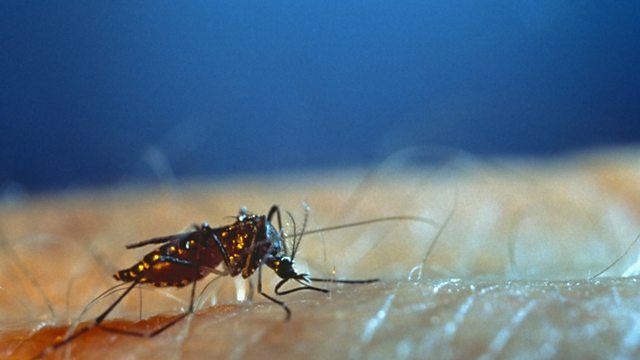
Artemisinin Resistant Malaria in Africa
Malaria resistance to artemisinin drug found in Kenya; Will Moore's Law - that the number of components on an integrated circuit would double every year – last?
Artemisinin is the most effective malaria drug we have. The parasite has developed resistance to it in Asia, and researchers have just found indications of resistance in Africa. Dr Colin Sutherland of the London School of Hygiene and Tropical Medicine explains the research.
Fifty years of Moore’s Law
When Intel co-founder Gordon Moore wrote his 1965 paper "Cramming More Components Onto Integrated Circuits", he made a bold prediction about the future of electronics. At the time, few people believed him, mostly because integrated circuits were so expensive. However, 50 years on, Moore's Law has come to define the computing industry. His famous prediction - that the number of components on an integrated circuit would double every year, has become a self-fulfilling prophecy for the computing industry. But will it last and what about the far future?
Superfast computer-led trading
With news this week, of a British financier’s arrest over alleged involvement in the Flash Crash of 2010, what are the pros and cons of the next new era of superfast computer-led trading? It’s now set to happen even faster thanks to a higher speed, transatlantic communications cable that goes live this summer. Tracey Logan discusses new technological developments that get close to trading at the speed of light with science writer Mark Buchanan and hedge fund scientist Matthew Killeya.
Oldest ever cave paintings in France
The ����ý's Rebecca Morelle has been reporting from the Chauvet-Pont-d'Arc Cave, which contains some of the oldest known and best preserved cave paintings in the world. The ����ý journalist is one of the few people who were granted access to the cave.
Healthy guts
The Yanomami people are Amerindians thought to have been completely isolated since their ancestors arrived in South America after the last ice-age. Now a multinational team of scientists has more than made contact with them - it’s persuaded them to donate samples of their faeces hoping to find good bacteria and useful genes that people living Western lifestyles are thought to have lost. Maria-Gloria Dominguez-Bello, a microbiologist at the New York University School of Medicine explains how this could provide valuable insight into causes and treatment of escalating metabolic and inflammatory diseases in the western world.
Jane Francis
Just twenty years ago, the British Antarctic Survey (BAS) would not allow women to camp in Antarctica. In 2013, it appointed Jane Francis as its Director. Jane tells Jim Al-Khalili how an intimate understanding of petrified wood and fossilised leaves took her from Dorset’s Jurassic coast to this icy land mass.
Safe Landing for Drones
Researchers at the Robotics and Perception Group of the University of Zurich have unveiled new technology to automatically recover and stabilize a drone that goes awry as well as execute an autonomous landing in instances of failure. Leading researcher, Professor Davide Scaramuzza explains how it works.
Presented by Gareth Mitchell with comments from ����ý reporter John Amos.
Producer: Melanie Brown
(Photo: Close-up of a Mosquito)
Last on
More episodes
Next
Clip
-
![]()
Rare glimpse of cave paintings thought to be 35,000 years old
Duration: 01:34
Broadcasts
- Sat 25 Apr 2015 21:05GMT����ý World Service Online
- Sun 26 Apr 2015 10:05GMT����ý World Service Online
Podcast
-
![]()
Unexpected Elements
The news you know, the science you don't


